 LOUISIANA DEPARTMENT OF ENVIRONMENTAL QUALITY | Secretary Courtney J. Burdette
LOUISIANA DEPARTMENT OF ENVIRONMENTAL QUALITY | Secretary Courtney J. Burdette
 A DEPARTMENT OF THE STATE OF LOUISIANA
A DEPARTMENT OF THE STATE OF LOUISIANA
The CWSRF program can commit to projects at any time over the course of the year. However, the peak time for project commitments are typically in the late spring and early summer each year.
The CWSRF program will accept pre-applications at any time during the year.
No, you do not have to reapply. Once a pre-application is received, that project will be added to our Priority List. A project will remain on the Priority List until it is funded, formally removed by the potential borrower, or for a period not to exceed 5 years.
The current interest rate and loan terms can be found on our Loan Rate / Terms webpage.
The 2 year construction period is 2 years from the loan closing date in which only the interest payments are required as part of the debt service. The principle payments are not included in the debt service until after this 2 year period.
Each year the amount of subsidy available is limited and subject to change. However, the CWSRF program has historically awarded subsidy to Disadvantaged Communities and/or Green Project Reserve projects. Please contact our staff if you are interested in pursuing a subsidy amount for your loan/project.
Yes, any steady source of income can be pledged toward revenues (i.e. income tax, mileages, casino profits, sewer fees, etc.)
No a specific sewer fee/structure is not required. LDEQ allows borrowers to pledge any available budgeted revenue as long as it meets the debt service coverage ratio, and any other requirements set forth in the Bond Ordinance or Loan Agreement.
The CWSRF program awards are based on the project needs and the financial capability that the program has to meet those needs. However, the CWSRF program can work with a borrower regarding routine phased loans to assist with completing larger scale projects.
Our goal is thirty (30) days but that goal is largely dependent on all of the required supporting information being presented to the department at the time of the request.
Our process only approves the issuance of the payment. For the protection of all parties, actual transfers of funds are conducted by the State of Louisiana, Division of Administration, Office of Statewide Reporting and Accounting Policy. To discuss payment details, such as payment method or deposit accounts, please contact OSRAP Customer Service at (225) 342-1097.
A PER is only required in conjunction with an Environmental Information Document (EID) when a project does not qualify for a Categorical Exclusion. For additional information regarding the PER requirements or about qualifying for a Categorical Exclusion, please see our guidance on our CWSRF forms page.
Please see our Categorical Exclusion Guidance document on our CWSRF Forms page.
The GPR is our Green Project Reserve requirement. GPR projects have to be classified as one of the following four categories: Water Efficiency, Energy Efficiency, Green Infrastructure, and Environmentally Innovative. For additional information, please see the GPR Guidance on our Resources webpage.
No, LDEQ does not have a specific form for the required Davis Bacon wage interviews. The Davis Bacon Act and associated requirements are governed by the Department of Labor (DOL). DOL does have some recommended interview forms, which can be found on our Resources webpage, but these are not required.
No, not exactly. While the requirements for AIS are similar to Buy American, these requirements are not the same. Please see the AIS guidance and additional EPA guidance on our Resources webpage.
Currently a project sign is only required if your loan is included as an Equivalency Project. Please contact our staff to assist with determining if your project is an Equivalency Project. Signage Guidance can be found on the Resources webpage.
However, if you project is receiving any Bipartisan Infrastructure Law (BIL) funds, you are also requried to incorporate and meet the BIL signage requirement. See the Guidance and Forms webpage for BIL Signage info.